Good reads: From Rebus to Inspector McLean, top Edinburgh crime-writers explore how their best-loved characters would cope in lockdown - Part One
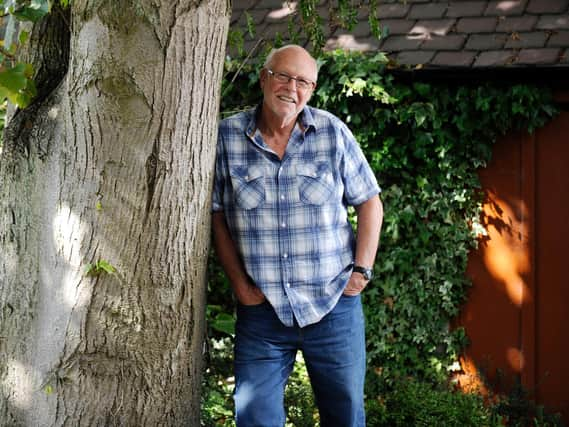

BEST-SELLING crime writer Ian Rankin recently brought his best known character, John Rebus, to life with the help of Brian Cox in The Lockdown Blues, a short film for the National Theatre of Scotland. In the literary world, Edinburgh has no shortage crime writers and fictional characters who keep the Capital’s streets safe, now, in the past, and in some cases, the future. But how would these characters have coped with life in isolation and how has lockdown affected their creator’s creative flow?
Rankin reflects that being in lockdown has given him “more time to actually write. I finished the next Rebus novel -set in the summer of 2019 thankfully. It has been decidedly odd going for walks around the city centre’s empty streets, but I doubt I’ll ever set a book during this particular time.” As for Rebus, the writer says, “He is in his late-60s and has COPD, so he’s in a very high-risk group.
Advertisement
Hide AdAdvertisement
Hide Ad“As such, he’s pretty well trapped in his flat with his friend Siobhan bringing him daily deliveries and insisting on taking his dog Brillo for walks so that he doesn’t have to. He has plenty of books and LP records and Siobhan will be topping up his alcohol supplies. But he’s mightily missing the Oxford Bar - and he’s not alone in that.”
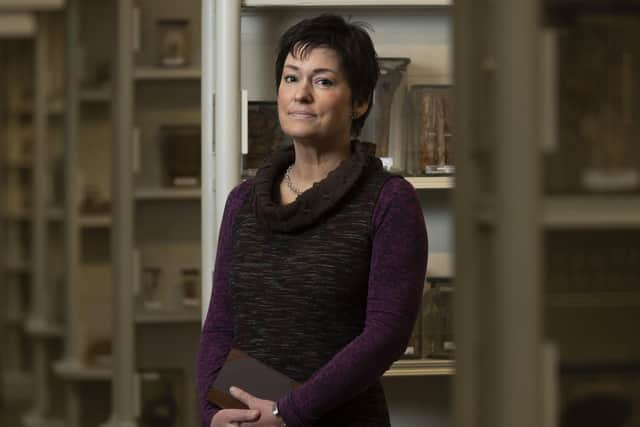

One character who would be quite at home in the midst of a pandemic is international best seller Ken McClure’s Sci-Med investigator, Dr Steven Dunbar.
The East Lothian medical thriller writer, who admits, “The only downside to the current situation is that I’ve become addicted to news programmes.
“Having a doctorate in microbial genetics means I know what I’m talking about when it comes to viruses and infection. The ‘experts’ wheeled out on a daily basis by the BBC often clearly don’t and I find this leads to my swearing a lot.”
Advertisement
Hide AdAdvertisement
Hide AdHe reflects, “The hero of my 12 book Dr Steven Dunbar series is no stranger to the horror of rampaging disease. He has come up against Ebola and Pandemic Flu in a couple of stories and another book features an outbreak of Smallpox in Edinburgh - sorry Muirhouse. Steven and his partner, Tally, continue their struggle against epidemic disease in the Democratic Republic of Congo in my latest book, Miasma - currently No 1 in the best seller list in the Czech Republic.”
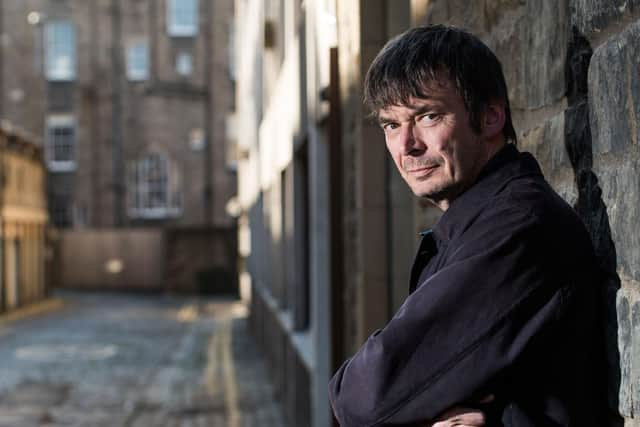

In her Jem Flockhart series, local author ES Thomson’s heroine, Jem Flockhart, solves crimes in the times of Queen Victoria. As a writer, Thomson concedes lockdown hasn’t troubled her much, “Queuing outside the supermarket means I can just stare into space for 20 minutes thinking about what I’m going to inflict on my characters next. I’ve always been a dreamer. Isolation gives me the chance to indulge it.”
So how would her protagonist, a mid nineteenth century apothecary cope with lockdown. “Jem would have no problem with being in quarantine - she would be used to a world seething with unpredictable infectious diseases, when the transmission of many of these, rather like coronavirus, were not fully understood. Cholera was believed to be spread by bad smells, or ‘miasma’, so face masks might have made sense to many. But there was also typhus, typhoid fever, diphtheria, even the plague was not unknown. Death by infectious disease was just a part of life for Jem, and leaving the house every day brought with it the risk of catching a something deadly - an outlook we might find hard to comprehend today.”
Bringing a more supernatural slant to policing in the Capital, award-winning James Oswald will shortly release the eleventh novel in his Inspector McLean series, however, admits to start with, the lockdown seemed to have quite a negative effect on his writing.
Advertisement
Hide AdAdvertisement
Hide Ad“Not so much the isolation itself, as the whole whirling mess of the news cycle, twitter updates and that horrible feeling of waiting for the next dreadful thing to happen,” he explains. “I had only just begun work on the eleventh Inspector McLean book, What Will Burn, when the lockdown was announced and the early stages of a first draft are always a bit bumpy.”
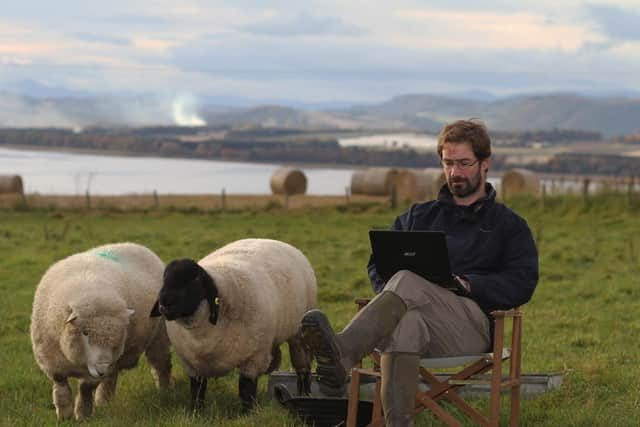

As for his hero, well, he’d react badly to lockdown.
“Especially if he was in the middle of some complicated investigation and had to adapt his methods to the new normal,” he considers. "Tony McLean has always been a detective who does things his own way, he also believes in justice, and would feel compelled to do the right thing. He wouldn’t hesitate to put himself in harm’s way but he would hate to be thought of as risking others for his own ends. The conflict would chafe at him... if it were simply a matter of isolating himself, he would have few problems, having always been someone happiest in their own company.”
Policing the Capital, DS Taylor Nicks and DC Marcus Black get themselves into all sorts of scrapes courtesy of crime writer and serving police officer Lee Cockburn, who reveals lockdown has effectively put a stop to her writing.
“I like to write alone with peace from the duties of being a parent and a partner, now I am working full time, 24/7 shifts, three hours of schooling daily and the other hours are spent parenting, exercise, with an hour or two for sleep. Short answer is, lockdown, has locked down my writing,” she says.
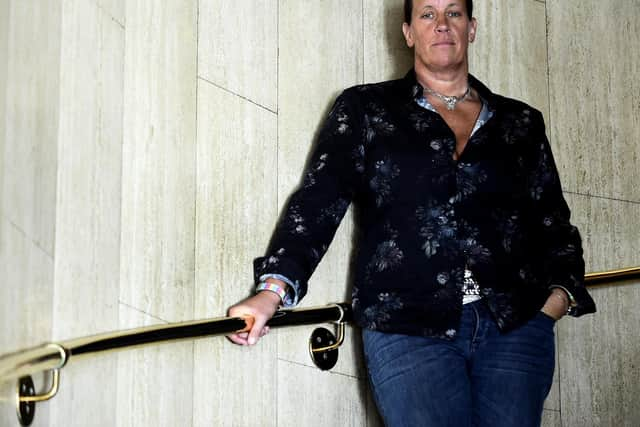

Advertisement
Hide AdAdvertisement
Hide AdAs for her characters, “Taylor and Marcus would still be trawling the streets for crime, searching for the evil that lives among us” she reflects, and it sounds like she may have the bones of their next investigation already, as she continues, “Several deaths were reported in Edinburgh, with wealthy, but previously healthy parents succumbing to the virus... When DS Nicks looks a little closer into those deaths, there is a similar pattern that keeps recurring. The virus appears to have been brought into their safe space, deliberately, and there was plenty money to be made, for those left grieving, or not?
“The hunt is on to prove some people are unscrupulous in their depraved desire for wealth at any cost, even murder.”
In Part Two tomorrow, Lesley Kelly, Alex Brown, Peter Ritchie, Oscar de Muriel, Paul Johnston and Neil Broadfoot
A message from the Editor
Thank you for reading this story on our website. While I have your attention, I also have an important request to make of you.
Advertisement
Hide AdAdvertisement
Hide AdIn order for us to continue to provide high quality and trusted local news on this free-to-read site, I am asking you to also please purchase a copy of our newspaper.
Our journalists are highly trained and our content is independently regulated by IPSO to some of the most rigorous standards in the world. But being your eyes and ears comes at a price. So we need your support more than ever to buy our newspapers during this crisis.
With the coronavirus lockdown having a major impact on many of our local valued advertisers - and consequently the advertising that we receive - we are more reliant than ever on you helping us to provide you with news and information by buying a copy of our newspaper.
Thank you
Joy Yates
Editorial Director
Comment Guidelines
National World encourages reader discussion on our stories. User feedback, insights and back-and-forth exchanges add a rich layer of context to reporting. Please review our Community Guidelines before commenting.